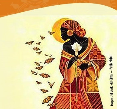Banca de DEFESA: DAVID SILVA RODRIGUES
Uma banca de DEFESA de MESTRADO foi cadastrada pelo programa.STUDENT : DAVID SILVA RODRIGUES
DATE: 31/08/2023
TIME: 10:00
LOCAL: Online
TITLE:
REFLECTIONS ON THE SILENCING OF THE HISTORY/CULTURE OF THE CAMACAN IN PUBLIC SCHOOLS IN THE CITY OF CAMACAN: in a countercolonial approach to inclusion based on Law 11.645/2008
KEY WORDS:
Camacã People, Indigenous Stories/Cultures, Countercoloniality, Teaching, Silencing, (Re)Existence
PAGES: 152
BIG AREA: Ciências Humanas
AREA: Educação
SUBÁREA: Tópicos Específicos de Educação
SPECIALTY: Educação Rural
SUMMARY:
The present qualification text is part of the research where I try to discuss the relationship between the silencing imposed on the history and culture of the Camacã indigenous ethnic group and the construction of the official memory of the city of Camacan (Bahia). For this, I analyze the curricular model adopted in the official basic education network of the municipality where I live and work as a teacher. Right from the start, I point out that a historical erasure of the Camacã People is perceived since the formation of the municipality that opted for the celebration of the “heroic past” built by its supposed founders: the families of cocoa farmers who came from Canavieiras; the “travellers or pioneers” who expanded cocoa farming on land expropriated from the indigenous groups that inhabited the area. A process of territorial occupation that was responsible for a systematic attempt to destroy the original populations throughout southern Bahia and bequeathed to them genocide, ethnocide and the dispersion of the Camacã indigenous remnants. It was about declaring the total extinction of this People who were excluded from the local memory without realizing their role through different forms of resistance and (re)existence. When it comes to this Native People, education from Camaca reproduces in essence the version of the Camacã as beings from the distant past because they are extinct. This is done through simplifications and stereotypes that do not match what Law 11,645/08 advocates. It is worth remembering that this law made it mandatory to value indigenous histories and cultures in Brazilian schools. We propose a counter-colonial re-reading of these representations, highlighting how much the Camacã are part of our community, history, culture, memory and identity, deserving respect and recognition.
COMMITTEE MEMBERS:
Presidente - ***.250.508-** - CARLOS JOSÉ FERREIRA DOS SANTOS - UESC
Interno - ***.437.049-** - CLEBER RODRIGO BRAGA DE OLIVEIRA - UFBA
Interna - 1149021 - ANA CRISTINA SANTOS PEIXOTO
Externa à Instituição - LÍGIA MARINA DE ALMEIDA - UFRN
Externa à Instituição - JENNIFER JACOMINI DE JESUS - UDESC
Externo à Instituição - EVERTON LAMPE DE ARAUJO - UDESC



